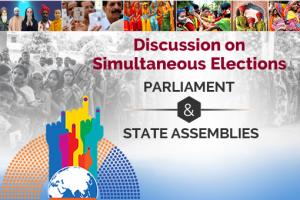- Chandigarh UT
- Creative Corner
- Dadra Nagar Haveli UT
- Daman and Diu U.T.
- Department of Administrative Reforms and Public Grievances
- Department of Biotechnology
- Department of Commerce
- Department of Consumer Affairs
- Department of Industrial Policy and Promotion (DIPP)
- Department of Posts
- Department of Science and Technology
- Department of Telecom
- Digital India
- Economic Affairs
- Ek Bharat Shreshtha Bharat
- Energy Conservation
- Expenditure Management Commission
- Food Security
- Gandhi@150
- Girl Child Education
- Government Advertisements
- Green India
- Incredible India!
- India Textiles
- Indian Railways
- Indian Space Research Organisation - ISRO
- Job Creation
- LiFE-21 Day Challenge
- Mann Ki Baat
- Manual Scavenging-Free India
- Ministry for Development of North Eastern Region
- Ministry of Agriculture and Farmers Welfare
- Ministry of Chemicals and Fertilizers
- Ministry of Civil Aviation
- Ministry of Coal
- Ministry of Corporate Affairs
- Ministry of Culture
- Ministry of Defence
- Ministry of Earth Sciences
- Ministry of Education
- Ministry of Electronics and Information Technology
- Ministry of Environment, Forest and Climate Change
- Ministry of External Affairs
- Ministry of Finance
- Ministry of Health and Family Welfare
- Ministry of Home Affairs
- Ministry of Housing and Urban Affairs
- Ministry of Information and Broadcasting
- Ministry of Jal Shakti
- Ministry of Law and Justice
- Ministry of Micro, Small and Medium Enterprises (MSME)
- Ministry of Petroleum and Natural Gas
- Ministry of Power
- Ministry of Social Justice and Empowerment
- Ministry of Statistics and Programme Implementation
- Ministry of Steel
- Ministry of Women and Child Development
- MyGov Move - Volunteer
- New Education Policy
- New India Championship
- NITI Aayog
- NRIs for India’s Growth
- Open Forum
- PM Live Events
- Revenue and GST
- Rural Development
- Saansad Adarsh Gram Yojana
- Sakriya Panchayat
- Skill Development
- Smart Cities
- Sporty India
- Swachh Bharat (Clean India)
- Tribal Development
- Watershed Management
- Youth for Nation-Building
Discussion on Simultaneous Elections

Start Date :
Sep 07, 2016
Last Date :
Oct 16, 2016
00:00 AM IST (GMT +5.30 Hrs)
The desirability of holding simultaneous elections for the Lok Sabha and Vidhan Sabhas has been discussed at various levels. A considered view is that simultaneous elections will ...


Elections of vidhan sabha and loksabha must be at same time.it's difficult but not impossible.simultaneous elections will unblock the way of development .save money of our country,save time manpower,curruption,mobilization of black money which will surely boost the economy of our country.we the people in support of our govt.to make law for simultaneous election in India.I am sure that govt.in centre is capable to do this.
Thanks
#MyGov
I think having Lok & Vidhan sabha elections at the same time is excellent idea. it will save a lot of time and money and will lead to a stronger democracy. I complety agree that it need a lot of planning and manpower but it is never to late . once we will start thinking we can manage as we have done in case of GST bill. So government should start thinking about its excution as central government under Mr modi is capable enough to make this change happen within stipulated time.
Please see the attachment in favor of simultaneous elections.
I think election of Prime minister should be directly by the public. this will reduce the political pressure from the party as well as opposition.The Lok sabha & Vidhan Sabha elections must be at a time simultaneously to save 1- The money of Country. 2- Time of people. 3- To prevent the corruption in Election.4- The date must be same of Lok Sabha & Vidhan Sabha.
I think election of Prime minister should be directly by the public. this will reduce the political pressure from the party as well as opposition.
Sir
This will become one of the most dynamic reforms of India. Just like GST it will change the country. Sir I want to drag your attention towards promotion policy and transfer policy of Central Government employees you please look at this as it needs a lot of reforms. Promotion policy is completely biased towards group a employees and in stead of departmental examination for promotions it counts years of services sir if a deserving candidate wants to get promotion the system forbids
By having Lok & Vidhan sabha elections at the same time there is an issue of continuity. Lok Sabha & Vidhan Sabha (indirectly Rajya Sabha too) will all have new members at the same time.
And how to we realign the elections when say Vidhan Sabha of a state is dissolved midterm for whatever reason....
मेरे विचार में ग्राम पंचायत चुनाव से लेकर विधानसभा,लोकसभा तक के चुनाव एक साथ होने चाहिये।चुनाव के पहले संपूर्ण देश मे राष्ट्रपति शासन लागू करना चाहिए,कम से कम 6महीने पहले।
1. It should be desirable to hold the both elections simultaneously as in the other countries. We are a large population and every time we conduct an election, government have to spent a lot of money(needs no explanation). That money can become useful at better causes than voting .
2. Different parties participating in election flows the river of money to woo the voters (that money is coming out of our pockets to flow into the wrong pockets). Imagine what government can do with those money.